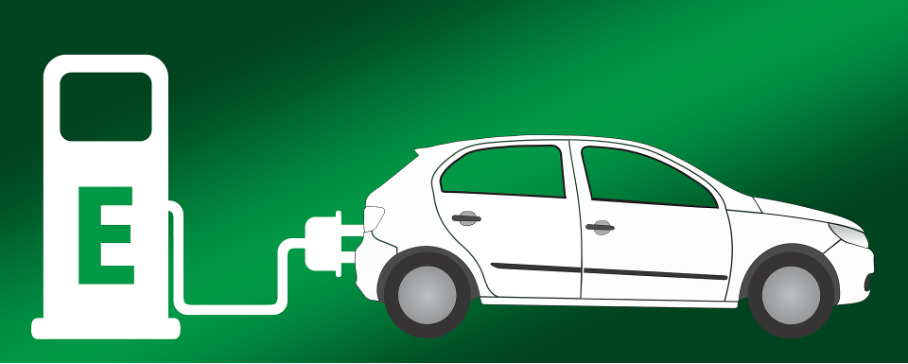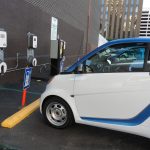
Modern technological solutions enable today’s countries to take increasingly comprehensive measures to develop global climate security. According to the European initiative “Fit fot 55”, the European Union has set itself the objective of achieving climate neutrality by 2050. The ambitious plans entail concrete actions to which the organisation has committed Member States. Electromobility, i.e. a wide range of issues related to the use of electric vehicles, is an important issue for the implementation of the European Green Deal. The gradual reduction of the popularity of combustion vehicles in favour of “electricians” is mainly aimed at reducing the release of carbon dioxide and other harmful chemicals into the air. The Polish legal system in this area is mainly governed by the Act of 11 January 2018 on Electromobility and Alternative Fuels.
In accordance with Article 1 of that act, it lays down the following:
1. the rules for the development and operation of the infrastructure for the use of alternative fuels in transport, hereinafter referred to as “the infrastructure for alternative fuels”, including the technical requirements to be met by such infrastructure;
2) the obligations of public authorities in the development of alternative fuels infrastructure;
(3) Information requirements on alternative fuels;
4) the conditions for the operation of the clean transport zones;
5) National policy frameworks for the development of alternative fuels infrastructure and its implementation.
The law defines many specific issues of electromobility. The catalogue of legal definitions is contained in Article 2 and the entire dictionary of terms contains 29 definitions, including explanations of terms such as:
Alternative fuels – Electricity or fuels used to propel engines:
(a) motor vehicles within the meaning of Article 2 (32) of the Law of 20 June 1997 – traffic law;
(b) rail vehicles;
(c) Watercraft
– as a substitute for fuels obtained from petroleum or obtained during processing, in particular hydrogen, liquid biofuels, synthetic and paraffinic fuels, compressed natural gas (CNG), including biomethane, liquefied natural gas (LNG), including biomethane, or liquefied natural gas (LPG),
Charging – electricity consumption of: (a) an electric vehicle, a hybrid vehicle, a zero-emission bus; (b) a non-electric motor vehicle, a moped, a bicycle or a bicycle forklift within the meaning of the Law of 20 June 1997 – Traffic Law – for the propulsion of that vehicle;
“electric vehicle” means a motor vehicle within the meaning of Article 2 (33) of the Law of 20 June 1997 – traffic law which uses exclusively electric energy stored by connection to an external source of electricity for propulsion purposes;
“hybrid vehicle” means a motor vehicle within the meaning of Article 2 (33) of the Law of 20 June 1997 – traffic law, combustion and electric propulsion, in which the electrical energy is stored by connection to an external source of electricity;
charging point – device for charging an electric vehicle, a hybrid vehicle and a zero-emission bus and the location where the battery used to power the vehicle is replaced or charged;
The law establishes the normative basis for the existence of electric, hybrid, gas and hydrogen vehicles in the legal area. The definition of zero-emission buses in Art. 2 is also relevant to the municipal authorities, according to which it is a “bus within the meaning of Art. 2 No. 41 of the Law of 20 June 1997 – Traffic Law (GBl. 2021 item 450, e.g. 2.) and trolleybuses within the meaning of Article 2 No 83 of this Law that use electric energy, including hydrogen incorporated in the fuel cells, for their propulsion, or only an engine whose operating cycle does not cause greenhouse gases or other substances falling under the Emission Management System for Greenhouse Gases and Other Substances pursuant to the Law of 17 July 2009 on an Emission Management System. emissions management system fall. Greenhouse gases and other substances (OJ 2022 item 673);”
The Electric Mobility and Alternative Fuels Act is a national law, but because of the regulatory issues relevant to the EU, it is an act implementing EU law. The Act repeals Directive 2014/94/EU of the European Parliament and of the Council of 22 October 2014 on the development of alternative fuels infrastructure (OJ 2014 L 343, p. EU L 307, 28.10.2014, p. 1); Directive (EU) 2019/1161 of the European Parliament and of the Council of 20 June 2019 amending Directive 2009/33/EC on the promotion of clean and energy-efficient road vehicles (OJ L 347, 17.6.2019, p. 1). EU L 188 of 12.07.2019, p. 116), Directive (EU) 2019/944 of the European Parliament and of the Council of 5 June 2019 concerning common rules for the internal market in electricity and amending Directive 2012/27/EU (OJ L 186, 30.7.2019, p. EU L 158, 14.06.2019, p. 125) and Directive (EU) 2018/844 of the European Parliament and of the Council of 30 May 2018 amending Directive 2010/31/EU on the energy performance of buildings and Directive 2012/27/EU on energy efficiency (OJ L 158, 14.6.2019, p. EU L 156, 19.06.2018, p. 75).
The legislative scope of this act is very broad, taking into account many specific provisions relating to the technical aspects of electromobility. The law regulates inter alia the obligations of the operator of a public charging station (Article 3), its liability for damage resulting from the failure of a public charging station to meet the technical requirements (Article 5) and the right of the operator of a public charging station to perform the functions of a charging service provider (Article 6). This Act also regulates the civilizational powers of units entering into a contract with the operator of the station. According to Article 7, the charging service provider may not make the provision of a charging service conditional on the user of the electric or hybrid vehicle having concluded a written, paper-based or electronic contract.
One of the main obligations of the operator of a publicly available charging station is to ensure that the electricity supplied to a publicly available charging station is used exclusively for the following purposes:
1) loading;
2. recharging or replacing a battery for the propulsion of an electric vehicle, a hybrid vehicle, a zero-emission bus or a motor vehicle within the meaning of Article 2 No 32 of the Law of 20 June 1997 – Traffic Law, which is not an electric vehicle;
3) to ensure the operation of this station.
The law also prescribes corresponding requirements that charging stations must meet. According to Article 13, charging stations, charging stations forming part of the charging infrastructure of public transport and shore-side power supply points for watercraft shall comply with the technical and operational requirements laid down in particular in the Polish Standards in order to ensure their safe operation, including fire protection, safe operation of electricity grids and access to charging stations for the disabled. It is also important that, before constructing the charging station, the builder asks the President of the Office of Technical Inspection for an opinion on the conformity of the technical documentation of the proposed station with the relevant technical requirements. The President of the UDT has 30 days to consider the application and issue an opinion.






